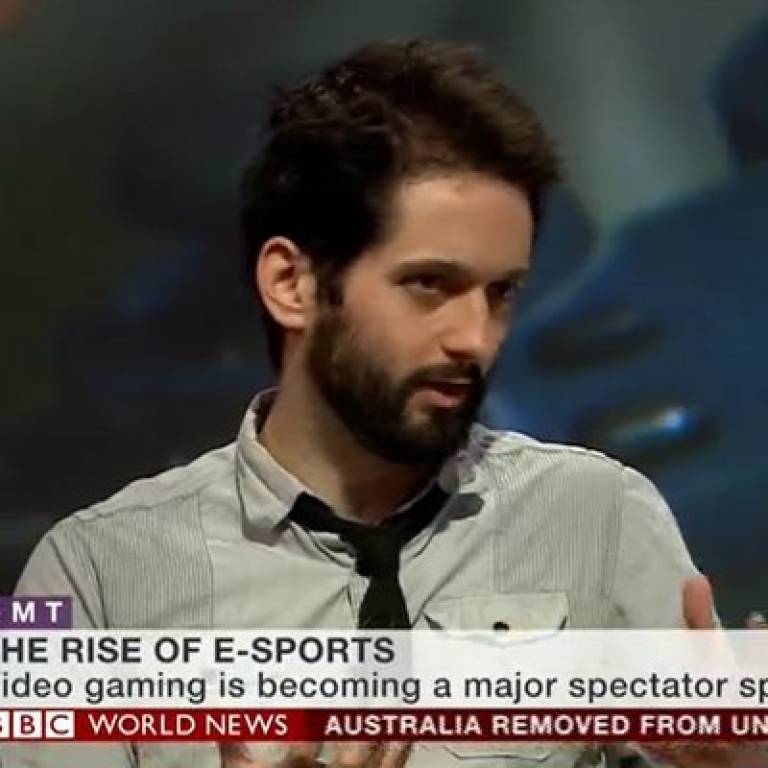STS Research Seminar - Dr Mark Johnson (UAlberta) - Weds 5th December
05 December 2018, 4:00 pm–6:00 pm

Mark Johnson (University of Alberta, Edmonton): 'Why do people watch other people playing video games? The rise of the broadcasting and spectating of digital play'
This event is free.
Event Information
Open to
- All
Availability
- Yes
Cost
- Free
Organiser
-
Department of Science and Technology Studies – Department of Science and Technology Studies.0207 6791328
Location
-
Room 110Roberts BuildingTorrington PlaceLondonWC1E 7JEUnited Kingdom
The STS Research Seminar series allows the department to exhibit some of the most interesting recent research in our field. We invite speakers both from UCL and the wider community to present their research to a varied and curious audience. On Wednesday 5th December, Dr Mark Johnson will visit the department to give his talk 'Why do people watch other people playing video games? The rise of the broadcasting and spectating of digital play'. The talk will begin at 4.30pm, with refreshments available from 4pm.
Abstract:
Ever since the earliest days of video games, many people have chosen to watch others playing these interactive technologies instead (or as well as) playing them themselves. Although this began with just looking over the shoulder of your friend in the arcade, nowadays over two million individuals from around the world regularly broadcast themselves playing video games over the internet, to viewing audiences of over one hundred million in total, with several thousand individuals able to make a full-time income, potentially in the six-figures, by monetising their broadcasts. Equally, the rise in the last decade of "eSports" - professionalised competitive video game play - has also highlighted this desire to watch others playing, with international competitions selling out arenas that can hold ten thousand spectators, and giving out tens of millions of dollars in prize money to the most skilled cyber-athletes that citizens tune in to view. Drawing on two years of (still ongoing) interview and ethnographic work, this talk will explore the interwoven phenomena of live streaming and eSports, and focus on three elements. Firstly: who is broadcasting/playing, and who is watching? What are the demographics, interests, backgrounds and motivations of those involved in both halves of these emerging ecosystems? Secondly: what are the lives of these highly-visible video game players like, specifically in terms of labour and the transformation of play into work; and how do viewers view, and how does this differ (or remain similar to) television or cinematic media consumption? Thirdly, what do the futures of these two domains look like in the next five-to-ten years? What is the impact these phenomena are having on the games industry specifically, and media consumption more generally? The talk will therefore seek to explore these major changes in the sociotechnical entanglements of the video game industry and video game consumption - significantly larger than the film and music industries combined - and to begin to think about why precisely people would sometimes rather watch others playing video games, instead of simply playing them themselves.
About the Speaker
Dr Mark Johnson
Killam Postdoctoral Fellow at University of Alberta
Mark is game studies scholar somewhere at the intersection of the humanities, political science and sociology, and he studies where play and money meet (see below). Alongside his academic work, he is also an independent game developer of the roguelike game Ultima Ratio Regum, which has been covered in national and international media. He is the sole writer of the games blog www.ultimaratioregum.co.uk/game/, which has had over one million lifetime hits, and co-host of the Roguelike Radio podcast (also 1m+ hits). He has regularly written for a number of major gaming publications, such as Vice Gaming/Waypoint and Rock Paper Shotgun, as well as a wide range of specialist publications, and has been interviewed by national and international newspapers on a range of games topics. Before starting his doctoral work, he was previously a professional poker player for several years.
 Close
Close

